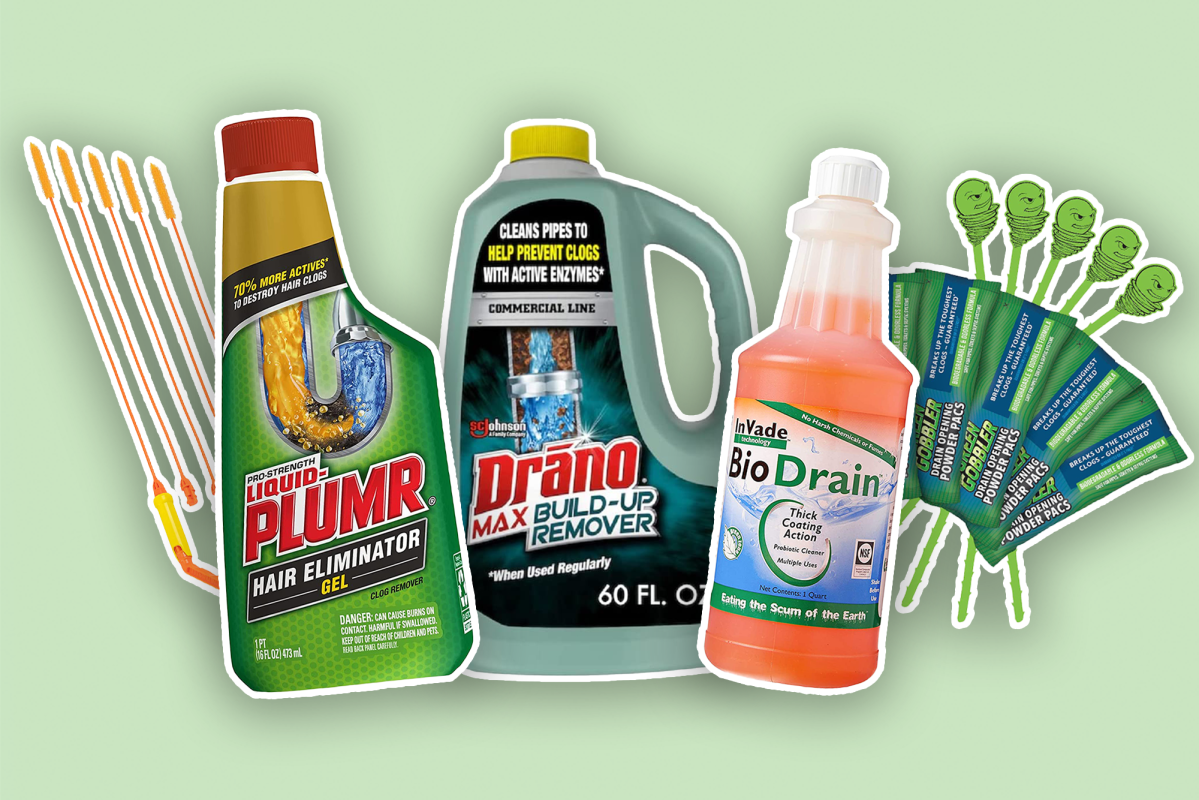Are you tired of dealing with clogged drains caused by hair in your septic system? Look no further, because we have the solution for you! In this article, we will explore the best drain cleaner specifically designed to tackle those pesky hair clogs in your septic system. Say goodbye to frustrating clogs and hello to a smoothly flowing drain with the help of our recommended drain cleaner. Get ready to bid farewell to hair clogs and enjoy a hassle-free septic system!
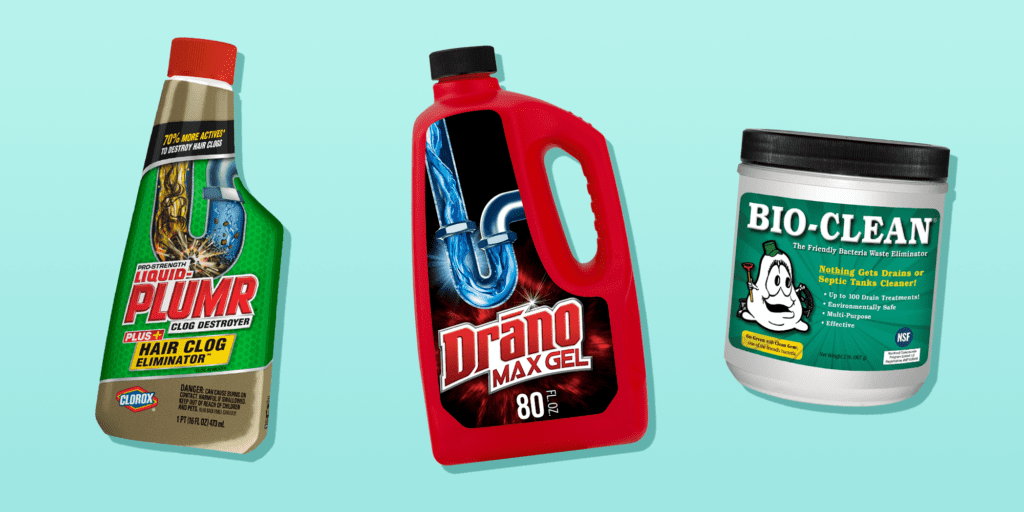
1. Understanding Hair Clogs in Septic Systems
1.1 How hair clogs affect septic systems
Hair clogs are a common problem in septic systems and can have a significant impact on their performance. When hair accumulates in the drains, it can mix with other substances, such as soap scum and grease, forming a stubborn clog. This clog restricts the flow of water through the pipes and can lead to backups and overflows in the septic system.
Hair is particularly problematic in septic systems because it does not break down easily. Unlike other organic materials, hair is resistant to decomposition and can linger in the pipes and tank for a long time. As a result, hair clogs can persist and worsen over time, causing more severe damage to the septic system if left untreated.
1.2 Common symptoms of hair clogs in septic systems
There are several signs that indicate the presence of hair clogs in septic systems. One of the most noticeable symptoms is slow drainage in sinks, showers, and tubs. As the hair clog obstructs the flow of water, it takes longer for the water to drain away, resulting in standing water or slow drainage.
Another common symptom is unpleasant odors emanating from the drains. Hair clogs can trap bacteria and other organic matter, leading to the release of foul smells. These odors can permeate throughout your home, making it an unpleasant living environment.
Additionally, recurring backups and overflows in the septic system can also be an indication of hair clogs. When the clog becomes severe, it can cause wastewater to back up into sinks, toilets, or even the yard. This poses not only a health hazard but also a significant inconvenience.
1.3 Potential damage caused by hair clogs in septic systems
If hair clogs are not addressed promptly, they can cause serious damage to septic systems. The accumulation of hair in the pipes can lead to increased pressure and stress on the system, potentially causing pipe bursts or leaks. These leaks can result in water damage to your property and may require costly repairs.
Hair clogs can also hinder the proper functioning of the septic tank. When the water flow is obstructed, it can lead to an imbalance in the system, preventing the efficient separation of solids and liquids. This can result in a buildup of sludge and scum in the tank, reducing its capacity and overall effectiveness.
Furthermore, hair clogs can contribute to the growth of anaerobic bacteria in the septic system. These bacteria thrive in the oxygen-deprived environment and can produce toxic gases, such as hydrogen sulfide. Exposure to these gases can be harmful to your health and may cause symptoms such as headaches, nausea, and respiratory issues.
2. Importance of Using Drain Cleaners for Hair Clogs in Septic Systems
2.1 Preventing further damage to the septic system
Using drain cleaners specifically designed to dissolve hair clogs can help prevent further damage to your septic system. These drain cleaners contain powerful substances that break down the hair, allowing it to flow freely through the pipes and into the septic tank.
By addressing hair clogs early on, you can prevent them from becoming more severe and causing additional complications in your septic system. Regular use of drain cleaners can help maintain the optimal functioning of your system and extend its lifespan.
2.2 Avoiding costly repairs and maintenance
Hair clogs can lead to expensive repairs and maintenance if left untreated. By using drain cleaners for hair clogs in septic systems, you can avoid the need for professional intervention and the associated costs. Regular maintenance with drain cleaners can save you money in the long run by preventing major septic system issues.
2.3 Ensuring proper functioning of the septic system
A properly functioning septic system is crucial for the overall well-being of your home. By using drain cleaners to tackle hair clogs, you can ensure that the water flows smoothly through the pipes, preventing backups and overflows. This promotes the efficient separation of solids and liquids in the septic tank, maintaining its functionality and preventing any potential damage.

3. Types of Drain Cleaners for Hair Clogs in Septic Systems
3.1 Chemical drain cleaners
Chemical drain cleaners are widely available and are effective in dissolving hair clogs in septic systems. These cleaners typically contain strong chemicals, such as sodium hydroxide or sulfuric acid, which break down the hair and other organic materials.
3.1.1 Pros of chemical drain cleaners
- Chemical drain cleaners are highly effective in removing hair clogs, often providing quick results.
- They are readily available in most stores and are relatively affordable.
- Chemical drain cleaners can help sanitize the pipes and eliminate bacteria that may contribute to unpleasant odors.
3.1.2 Cons of chemical drain cleaners
- Chemical drain cleaners can be harsh on pipes, especially if used excessively or on older plumbing systems. They may cause corrosion or damage to the pipes over time.
- Some chemical drain cleaners produce noxious fumes, which can be harmful if inhaled. It is important to use them in a well-ventilated area and follow safety precautions.
- Chemical drain cleaners are not environmentally friendly and may have a negative impact on septic systems and surrounding ecosystems.
3.2 Enzymatic drain cleaners
Enzymatic drain cleaners are an alternative to chemical cleaners, utilizing naturally occurring enzymes to break down hair and other organic matter. These cleaners are generally considered safer for pipes and septic systems.
3.2.1 Pros of enzymatic drain cleaners
- Enzymatic drain cleaners are non-toxic and environmentally friendly. They do not contain harsh chemicals that can damage pipes or harm the septic system.
- They tend to be gentler on the skin and do not produce strong odors, making them safer to handle.
- Enzymatic drain cleaners can help maintain a healthy microbial balance in the septic system, promoting efficient decomposition and reducing the risk of clogs.
3.2.2 Cons of enzymatic drain cleaners
- Enzymatic drain cleaners may take longer to dissolve hair clogs compared to chemical cleaners. They require sufficient time for the enzymes to break down the organic matter.
- These cleaners may be less effective on severe or stubborn clogs and may require repeated applications.
- Enzymatic drain cleaners can be slightly more expensive than chemical drain cleaners.
3.3 Natural drain cleaners
Natural drain cleaners are another option for addressing hair clogs in septic systems. These cleaners are typically made from ingredients such as baking soda, vinegar, or citrus extracts. They offer a chemical-free alternative for those seeking a more eco-friendly solution.
3.3.1 Pros of natural drain cleaners
- Natural drain cleaners are safe for septic systems and do not pose a risk of corroding pipes or causing damage to the system.
- They are non-toxic and environmentally friendly, making them a suitable choice for households with concerns about chemical exposure.
- Many natural drain cleaners can also help eliminate unpleasant odors caused by hair clogs.
3.3.2 Cons of natural drain cleaners
- Natural drain cleaners may not be as effective in dissolving severe hair clogs compared to chemical or enzymatic cleaners.
- They often require longer contact time and may need to be combined with other cleaning methods for optimal results.
- Natural drain cleaners may have a milder scent compared to chemical cleaners, but they may still have a distinct odor that some people find unpleasant.
4. Factors to Consider when Choosing the Best Drain Cleaner for Hair Clogs in Septic Systems
Choosing the right drain cleaner for hair clogs in septic systems involves considering several important factors. By carefully evaluating these factors, you can ensure that you select a product that is effective, safe, and compatible with your septic system.
4.1 Compatibility with septic systems
Not all drain cleaners are suitable for use in septic systems. It is essential to choose a drain cleaner specifically labeled as safe for septic systems. These cleaners are formulated to be gentle on septic systems and will not disrupt the natural bacterial balance necessary for proper functioning.
4.2 Effectiveness against hair clogs
The primary purpose of using a drain cleaner is to dissolve hair clogs. Look for a product that has a proven track record of effectively removing hair clogs in septic systems. Customer reviews and recommendations can provide valuable insights into the effectiveness of a particular drain cleaner.
4.3 Safety considerations
Safety should always be a top priority when selecting a drain cleaner. Consider factors like toxicity, fume emission, and skin irritation potential. Opt for drain cleaners that are labeled as non-toxic, have minimal fumes, and are safe to handle. It is also important to follow the manufacturer’s instructions and use recommended safety precautions.
4.4 Environmental friendliness
If sustainability and minimizing environmental impact are important to you, choose a drain cleaner that is environmentally friendly. Look for products that are biodegradable and use natural or plant-based ingredients instead of harsh chemicals. These cleaners are less likely to harm the septic system or contribute to pollution.
4.5 Ease of use
Select a drain cleaner that is easy to use and does not require complicated procedures. Consider factors such as the application method (pouring, foaming, or tablets), the amount of time required for the cleaner to work, and any additional steps involved. A user-friendly drain cleaner will make the cleaning process more convenient and efficient.
4.6 Cost-effectiveness
Evaluate the cost of the drain cleaner in relation to its effectiveness and the frequency of use. Some drain cleaners may be more expensive upfront but offer long-term benefits or larger quantities. Consider the value for money and choose a drain cleaner that balances effectiveness and affordability.
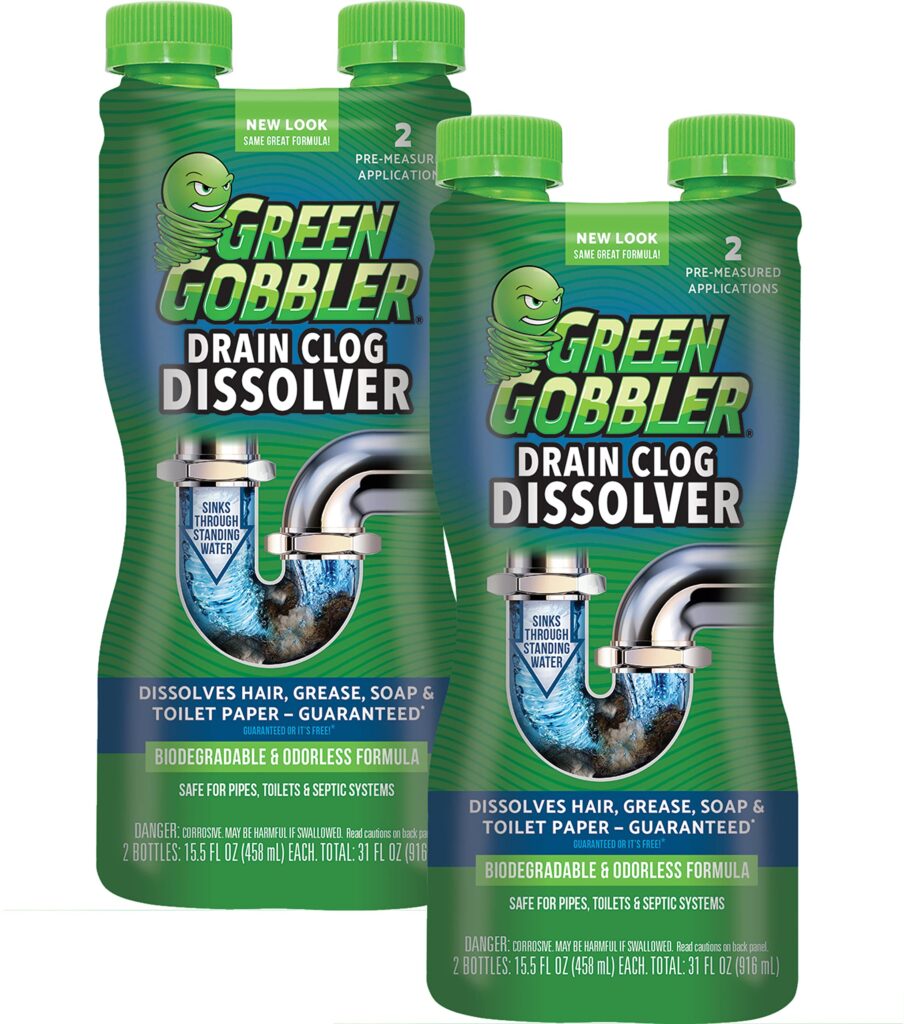
5. Top Rated Drain Cleaners for Hair Clogs in Septic Systems
5.1 Product A: Overview and features
Product A is a drain cleaner specifically formulated for hair clogs in septic systems. Its powerful combination of enzymes effectively breaks down hair and organic matter, ensuring a clear and free-flowing drain. This drain cleaner is compatible with septic systems and does not harm pipes or the environment.
5.1.1 Pros of Product A
- Highly effective in dissolving hair clogs and improving drainage.
- Compatible with septic systems and does not harm pipes or the environment.
- Easy to use, with clear instructions provided.
- Long-lasting formula, requiring less frequent applications.
5.1.2 Cons of Product A
- May take longer to dissolve severe or stubborn hair clogs.
- Slightly more expensive compared to other drain cleaners.
5.2 Product B: Overview and features
Product B is a chemical drain cleaner that specializes in removing hair clogs in septic systems. Its powerful formula breaks down hair and other organic materials, restoring proper flow and preventing further damage. This drain cleaner is readily available and offers a cost-effective solution for hair clog removal.
5.2.1 Pros of Product B
- Highly effective in dissolving hair clogs and restoring drainage.
- Affordable and readily available in most stores.
- Quick results, reducing the need for repeated applications.
5.2.2 Cons of Product B
- Harsh chemicals may cause damage to pipes if used excessively or on older plumbing systems.
- Strong fumes may require proper ventilation and safety precautions during use.
5.3 Product C: Overview and features
Product C is a natural drain cleaner that effectively tackles hair clogs in septic systems. Its gentle yet potent combination of natural ingredients breaks down hair and organic matter without harming the septic system or the environment. This drain cleaner is a safe and eco-friendly choice for individuals seeking a chemical-free option.
5.3.1 Pros of Product C
- Safe for septic systems and does not cause pipe damage.
- Environmentally friendly and biodegradable.
- Pleasant, natural scent.
- Suitable for individuals with sensitivities to chemical cleaners.
5.3.2 Cons of Product C
- May require longer contact time or additional cleaning methods for severe clogs.
- More expensive compared to some chemical drain cleaners.
6. Tips for Using Drain Cleaners for Hair Clogs in Septic Systems
To effectively use drain cleaners for hair clogs in septic systems, follow these tips:
6.1 Read and follow the instructions carefully
Each drain cleaner may have specific instructions and recommendations for best results. Read the product label and follow the instructions provided by the manufacturer. Using the drain cleaner correctly will ensure optimal effectiveness and safety.
6.2 Use recommended safety precautions
Some drain cleaners can be potentially harmful if mishandled or misused. Wear protective gloves and eyewear when using drain cleaners to prevent skin contact and eye irritation. Ensure proper ventilation in the area to avoid inhaling fumes. Always keep drain cleaners out of reach of children and pets.
6.3 Start with a small amount of the cleaner
When using a drain cleaner for the first time or on a minor clog, begin with a small amount. Pour a recommended portion of the cleaner into the drain and allow it to work. If necessary, repeat the process or increase the quantity for more stubborn clogs.
6.4 Allow sufficient time for the cleaner to work
Different drain cleaners require varying amounts of time to dissolve hair clogs. Follow the recommended waiting time provided by the manufacturer. Avoid using the drain or introducing water during this period to allow the cleaner to work effectively.
6.5 Regular maintenance to prevent future hair clogs
To minimize hair clogs in your septic system, consider establishing a regular maintenance routine. Use a drain cleaner specifically formulated for hair clogs on a preventive basis, even when no clogs are present. This will help keep your drains and septic system clear and running smoothly.
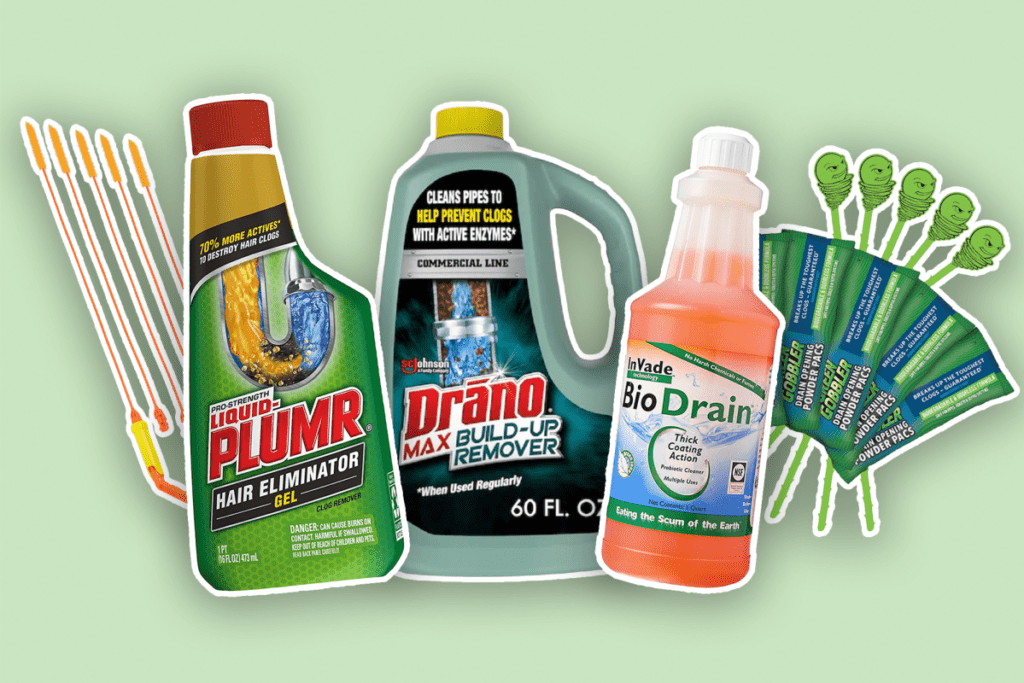
7. Alternative Methods for Clearing Hair Clogs in Septic Systems
While drain cleaners are typically the go-to solution for hair clogs in septic systems, alternative methods can also be effective in clearing stubborn clogs.
7.1 Mechanical snaking
A mechanical snake, also known as a drain auger, is a tool that can be used to physically remove hair clogs from pipes. It consists of a long flexible cable with a coiled wire at one end. Inserting the auger into the drain and rotating it breaks up the clog, allowing it to be pulled out.
Mechanical snaking is a suitable option for severe or persistent hair clogs that may not respond effectively to drain cleaners alone. However, it requires some level of expertise and can be challenging for individuals without prior experience. It is advisable to consult a professional plumber for assistance with mechanical snaking.
7.2 Hydro jetting
Hydro jetting is a powerful method for clearing hair clogs in septic systems. It involves using high-pressure water to blast away the clog and debris from the pipes. Hydro jetting can effectively remove even the most stubborn clogs and is particularly beneficial for larger plumbing systems.
However, hydro jetting is a specialized technique that requires professional equipment and expertise. It is typically performed by professional plumbers who have the necessary training and experience. If you are considering hydro jetting for your septic system, consult a reputable plumber to ensure safe and effective results.
7.3 Professional assistance
In cases where hair clogs are persistent, severe, or recurring despite attempts with drain cleaners or alternative methods, it may be necessary to seek professional assistance. Plumbers who specialize in septic systems can diagnose the underlying issue and provide targeted solutions to address hair clogs effectively.
Professional assistance may involve conducting a thorough inspection of your septic system, using specialized tools to clear the clogs, or providing recommendations for ongoing maintenance. Remember to choose licensed and reputable plumbers with expertise in septic systems to ensure high-quality service.
8. Maintenance Practices to Prevent Hair Clogs in Septic Systems
Preventing hair clogs in your septic system is essential to maintain its longevity and efficiency. By incorporating these maintenance practices into your routine, you can reduce the likelihood of hair clogs and minimize the need for frequent drain cleaning.
8.1 Regular inspection and pumping of the septic system
Schedule regular inspections of your septic system to identify any potential issues or signs of clogs. A professional inspector can assess the condition of your septic tank, pipes, and drain field. Additionally, regular pumping of the septic tank will prevent excessive buildup of solids and help maintain its functionality.
8.2 Use of drain screens or traps
Install drain screens or traps in your sinks, showers, and tubs to catch hair and prevent it from entering the drains. These screens or traps are designed to capture hair and other debris while allowing water to flow freely. Regularly clean the screens or traps to ensure optimal performance.
8.3 Proper disposal of hair
Dispose of hair properly instead of allowing it to enter the drains. Consider collecting hair removed during grooming or cleaning and disposing of it in sealed bags or containers. This prevents hair from accumulating in the drains and reduces the risk of hair clogs in your septic system.
8.4 Avoiding excessive use of chemical products
Limit the use of chemical-based hair products, such as shampoos, conditioners, and styling products, as these can contribute to the buildup of hair clogs. Opt for hair products that are biodegradable and environmentally friendly. Additionally, avoid pouring large quantities of chemicals down the drain, as this may disrupt the natural bacterial balance in the septic system.
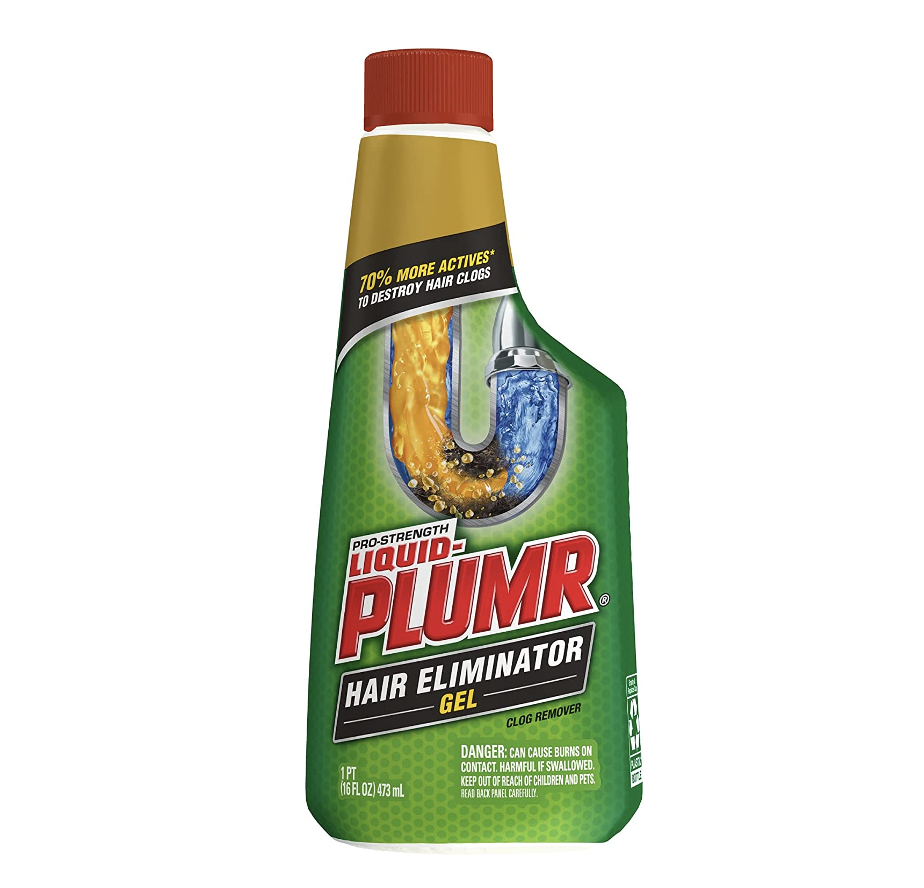
9. Frequently Asked Questions (FAQs) about Drain Cleaners for Hair Clogs in Septic Systems
9.1 Are drain cleaners safe for septic systems?
Yes, there are drain cleaners specifically formulated to be safe for septic systems. These cleaners are designed not to disrupt the natural bacterial balance in the septic tank. However, it is essential to choose a drain cleaner labeled as septic-safe and follow the recommended usage instructions to ensure optimal safety.
9.2 Can enzymatic drain cleaners dissolve hair clogs?
Enzymatic drain cleaners are effective in dissolving hair clogs, although the process may take longer compared to chemical drain cleaners. Enzymes work by breaking down the organic matter, including hair, into smaller molecules. For severe or stubborn hair clogs, repeated applications of enzymatic drain cleaners might be necessary.
9.3 How often should I use a drain cleaner for hair clogs?
The frequency of using a drain cleaner for hair clogs will depend on several factors, including the severity and frequency of clogs in your septic system. If you experience recurring clogs, it may be beneficial to use a preventative maintenance approach by using a drain cleaner on a regular schedule. Follow the recommended usage instructions provided by the manufacturer for best results.
9.4 Can natural drain cleaners cause damage to septic systems?
Natural drain cleaners are generally considered safe for septic systems. These cleaners do not contain harsh chemicals that can harm the septic system or disrupt the natural bacterial balance. However, it is still important to choose a natural drain cleaner that is specifically labeled as safe for septic systems to ensure compatibility and effectiveness.
10. Conclusion
Hair clogs in septic systems can lead to various issues, including slow drainage, unpleasant odors, and potential damage to pipes and the septic tank. Using drain cleaners specifically designed to dissolve hair clogs is an effective way to address this problem.
When selecting a drain cleaner for hair clogs in septic systems, consider factors such as compatibility with septic systems, effectiveness, safety, environmental friendliness, ease of use, and cost-effectiveness. There are various types of drain cleaners available, including chemical, enzymatic, and natural cleaners, each with their own pros and cons.
In addition to using drain cleaners, incorporating maintenance practices such as regular inspections, the use of drain screens or traps, proper hair disposal, and avoiding excessive use of chemicals can help prevent hair clogs in septic systems. Alternative methods like mechanical snaking or hydro jetting can be used for stubborn clogs, and professional assistance should be sought when necessary.
By following the tips and guidelines provided, you can choose the best drain cleaner for hair clogs in septic systems and maintain a healthy and efficient septic system for years to come.
